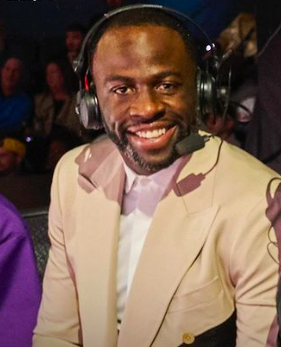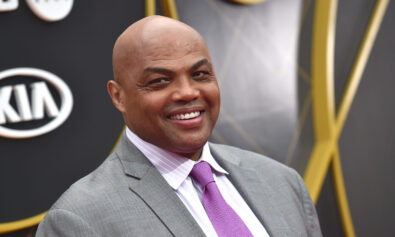Four-time NBA champion Draymond Green, who recently signed a four-year, $100 million contract to return to the Golden State Warrior, is one of the wealthiest in the league but believes the NBA takes too much money from players in fines. He also says the government takes too much money from athlete in what’s called “jock taxes” when they travel from state to state.

During an interview on Shaquille O’Neal’s “The Big Podcast,” he shared his gripes with the league’s penalty system and how much money athletes that travel from city to city are taxed by the government.
“It’s actually not set up for us to be wealthy after we’re done playing.”
— The Big Podcast (@bigpodwithshaq) May 24, 2024
-Draymond Green on the NBA’s fines 👀💰 pic.twitter.com/9vCrSc5htm
“The fines to me don’t make sense,” Green, who has an estimated net worth of $90 million, said to Shaq. “When you talk about, as hard as we work to accumulate wealth, coming from situations that most people never make it out of, and then you get fined the way that we get fined? It’s actually not set up for us to be wealthy after we’re done playing.”
He added, “This job is not set up, the way we’re taxed. The way we’re fined.”
Green, who has been in the league for 12 years, has been fined around $900,000 and lost $3.2 million to suspensions throughout his career, according to Spotrac data.
“You hear about all of these programs, like this program this, this program, that s—t is to cover everybody else. This program is to teach this guy this. But if I do something wrong, I lose $100,000. Man, it took my mom four years when I was growing up to make $100,000. And I lose that in a night because, what? The referee got mad at me, and he didn’t like what I said to him, so I lose $5,000 like that, on a tech?” he bemoaned.
While $100,000 in fines is a lot compared to his mother’s salary, he has earned over the past decade $255 million as a league player. He is currently the 61st highest-paid player in NBA history, according to CBS Sports. This excludes the money that he makes outside of the league in endorsements.
NBA Leads All Sporting Leagues In Fines
Despite his bad boy persona on the court, which keeps him in trouble with officials and the league’s higher ups, there may still be merit in Green’s point. The NBA collects more money in fines than the other sporting leagues.
But that money doesn’t all go back to the league’s pockets.
In the 2023-24 season alone, the NBA issued fines totaling over $7,867,890, affecting 844 players. The collected fine money is split evenly between the National Basketball Players Association (NBPA) Foundation and the league itself. Both entities allocate these funds to various philanthropic initiatives.
Lyzz Ogunwo, vice president of international development and global impact at the NBPA, explained to NBC Sports that players with at least three years in the NBA can apply for matching grants for their chosen nonprofits, Money Digest reported earlier in 2024.
In 2023, the NBPA Foundation distributed approximately $2.5 million to charitable causes through 141 grants, underscoring the league’s commitment to social impact
The majority of NBA players are not really facing fines frequently, usually limited to technical fouls with relatively small, fixed amounts.
Considering the NBA’s minimum salary is $1.1 million, fines represent a small fraction of a player’s earnings. These fines help maintain the league’s reputation and ensure strong relationships with fans and sponsors. Green’s frequent rule violations, like his incident with Rudy Gobert, require disciplinary measures to uphold league standards.
What is The Jock Tax?
Green’s issue is not only on the fine, but also on a traveling tax that they have to pay when they play outside of their home city.
Athletes are subject to the “jock tax,” which requires them to pay taxes in each state where they play. The concept around this taxing legislation is attributed to the state of California in the early 1990s. It gained widespread attention and became a notable term following a high-profile event involving the Chicago Bulls and their superstar Michael Jordan.
In 1991, after the Chicago Bulls won the NBA Finals against the Los Angeles Lakers, California levied state income taxes on the visiting Bulls players for the income they earned while playing games in California. In response, Illinois introduced its own version of the jock tax, taxing athletes from states that taxed Illinois-based athletes. This tit-for-tat taxation policy influenced other states to target the income of professional athletes who earn money while playing games in multiple jurisdictions, according to TheHustle.co.
Currently there is a lawsuit before the Pennsylvania Supreme Court argued by the city of Pittsburgh that the “tax is proper,” according to WESA. While the courts are considering the appropriateness of the tax, the city has stopped receiving it. As a result, the city has lost a significant amount of revenue.
Green may not be all the way wrong with his assessment, but some of his wealth loss is his own doing.




